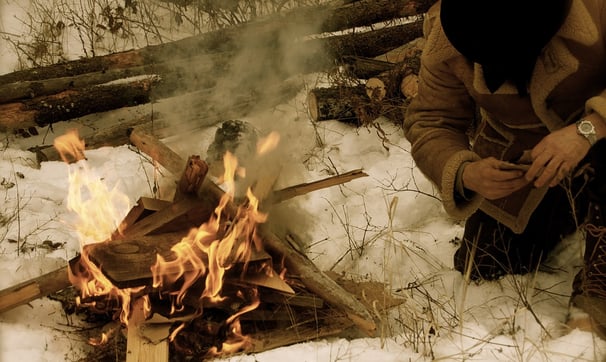Surviving Extreme Weather Conditions: Heat and Cold
BUSHCRAFTEDUCATIONSHELTER


Extreme weather conditions can be both awe-inspiring and perilous. Whether it's the scorching heat of a blazing summer or the bone-chilling cold of a harsh winter, these extreme weather phenomena demand our utmost respect and preparedness.
Extreme weather conditions can be both awe-inspiring and perilous. Whether it's the scorching heat of a blazing summer or the bone-chilling cold of a harsh winter, these extreme weather phenomena demand our utmost respect and preparedness. In this blog post, we will delve into tips and strategies for surviving two of nature's most extreme elements: heat and cold.
Surviving Extreme Heat
Stay Hydrated: Dehydration is a significant risk during hot weather. Always carry a water bottle and drink plenty of fluids, even if you don't feel thirsty. Avoid sugary or alcoholic beverages as they can contribute to dehydration.
Seek Shade and Cool Areas: When the sun is at its peak, try to stay indoors or find shade under trees or umbrellas. Air-conditioned places like shopping malls, libraries, or community centers can provide much-needed relief from the heat.
Dress Wisely: Opt for lightweight, loose-fitting, and light-colored clothing that allows air circulation. Wearing a wide-brimmed hat and sunglasses can also protect you from direct sunlight.
Limit Outdoor Activities: If possible, avoid outdoor activities during the hottest parts of the day, typically between 10 a.m. and 4 p.m. If you must be outside, take frequent breaks in the shade and pace yourself.
Use Sunscreen: Apply sunscreen with a high SPF rating to protect your skin from harmful UV rays. Reapply it every few hours, especially after swimming or sweating.
Know the Signs of Heat-related Illnesses: Educate yourself about heat exhaustion and heatstroke symptoms, such as dizziness, rapid pulse, nausea, confusion, and hot, dry skin. If you or someone else exhibits these signs, seek medical attention immediately.
Keep Your Living Space Cool: If you lack air conditioning, use fans, keep windows open during cooler parts of the day, and consider spending time in public places with air conditioning.
Use Cooling Products: Invest in cooling towels, vests, or fans that can help reduce body temperature during extreme heat exposure.
Surviving Extreme Cold
Layer Your Clothing: Dressing in layers helps trap body heat and provides better insulation. Start with a moisture-wicking base layer, add an insulating layer, and finish with a windproof and waterproof outer layer.
Protect Your Extremities: Frostbite often affects the fingers, toes, ears, and nose first. Wear thermal socks, gloves, and a hat that covers your ears to prevent frostbite.
Stay Dry: Moisture can accelerate heat loss from the body. Use waterproof clothing and gear, and avoid sweating excessively by adjusting your layers as needed.
Keep Moving: Physical activity generates body heat, so try to keep moving during cold weather. However, avoid overexertion to prevent sweating, as damp clothing can lead to hypothermia.
Seek Shelter: In extreme cold, find shelter as soon as possible. If you're outdoors and can't find a building, construct an emergency shelter using natural materials.
Insulate Your Sleeping Area: If you're camping or in an unheated space, insulate your sleeping area with extra layers, such as a foam pad or reflective emergency blanket.
Use Safe Heating Methods: If using space heaters or heating devices indoors, ensure proper ventilation and follow safety guidelines to prevent carbon monoxide poisoning or fires.
Stay Informed: Pay attention to weather forecasts and be aware of wind chill factors, as they can significantly affect how cold it feels outside.
Conclusion
Surviving extreme weather conditions requires a combination of preparation, awareness, and resourcefulness. Whether you're facing scorching heat or bone-chilling cold, taking the necessary precautions can mean the difference between discomfort and danger. Always prioritize safety, stay informed about weather conditions, and be prepared to adapt to the environment around you. Remember, with the right knowledge and mindset, you can conquer nature's most extreme challenges. Stay safe and take care!
